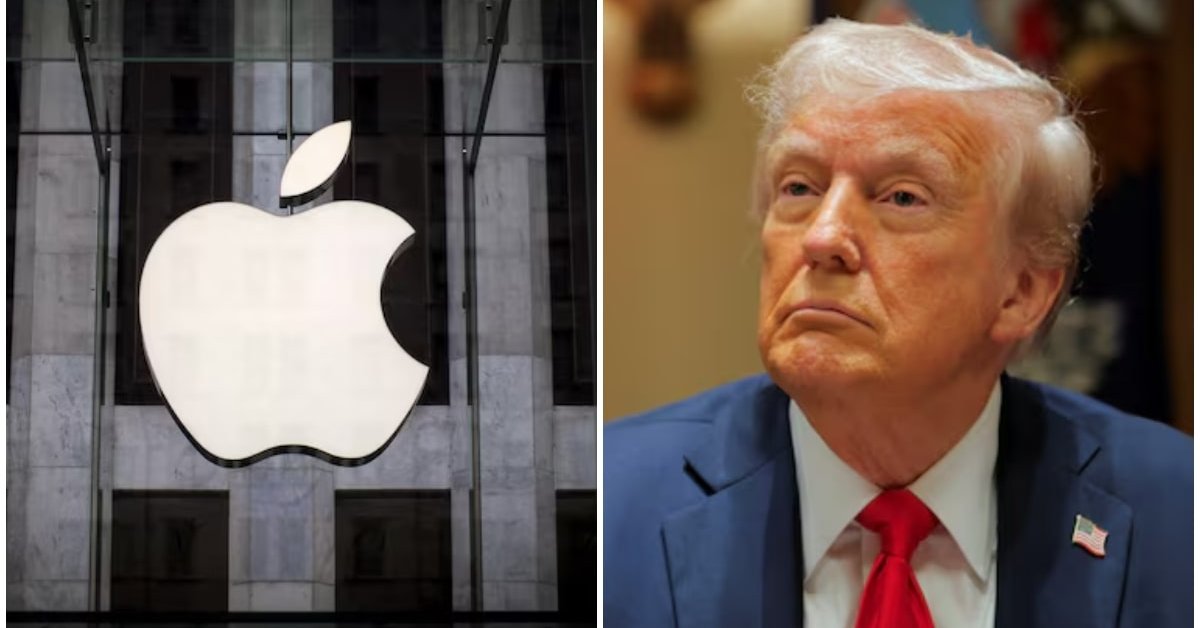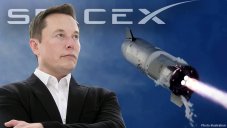Experts Say Trump's Call for US-Made iPhones Could Triple Prices
Karamchand - Apr 09, 2025

Apple could face nearly triple production costs if forced to manufacture iPhones domestically, despite President Trump's confidence in American manufacturing capabilities.
President Donald Trump has expressed confidence that Apple can manufacture iPhones and other devices within the United States, amidst escalating US-China trade tensions. However, technology experts quickly challenged this assertion, suggesting that a "Made in USA" iPhone could cost consumers approximately $3,500—nearly triple the current price.
During a recent press briefing, White House Press Secretary Karoline Leavitt affirmed President Trump's belief in America's manufacturing potential. "He believes we have the workforce, we have the human resources, we have the resources to do it," Leavitt stated. She also referenced Apple's $500 billion investment in the United States announced earlier this year, adding, "If Apple didn't think America could do it, they probably wouldn't have committed such a significant amount of money."

These statements come as President Trump plans to implement high tariffs on goods from China, Vietnam, Thailand, India, the European Union, and other countries starting April 9. Trump has declared that if companies like Apple wish to avoid these tariffs, they should relocate their manufacturing operations to the United States. However, despite the President's proposal that Apple could shift its incredibly complex supply chain to American soil, experts consider this virtually impossible to implement.
Experts Warn of Triple Price Increase
Beyond the enormous costs involved in such a transition, it remains questionable whether Apple and its suppliers could find enough skilled workers in the United States. Tim Cook, Apple's CEO, commented on manufacturing in China back in 2017, explaining that iPhones are assembled there because of China's advanced manufacturing expertise. "The popular conception is that companies come to China because of low labor costs. But the reality is China stopped being the low-labor-cost country many years ago. The reason is the skills, the quantity of skills in one location, and the type of skill," Cook explained.
Cook also noted that Apple products require highly advanced tooling and precision material handling. "The tooling skill here is very deep. In the US, you could have a meeting of tooling engineers and I'm not sure we could fill the room. In China, you could fill multiple football fields. It's a very deep vocational expertise."

Contrary to President Trump's confidence, Needham analyst Laura Martin expressed skepticism about Apple's ability to manufacture iPhones in the United States. "I don't think it's a viable thing," Martin said on CNBC's "The Exchange." She suggested that Apple's costs would skyrocket if it began building its flagship product domestically. Martin isn't the only Wall Street voice raising concerns. Wedbush analyst Dan Ives estimated that an iPhone would cost $3,500 if manufactured in the US—a price nearly three times higher than current models.
Supply chain relocation
Furthermore, the process of Apple relocating its supply chain to the United States would take many years, according to Martin. Most supply chain experts consider it impossible to completely manufacture iPhones in the US. They emphasize that Apple's complex global supply chain, with components sourced from over 50 countries, cannot be simply disrupted or consolidated in a single country, even if that country is the United States.
In the context of escalating trade tensions, Apple faces unprecedented challenges. The company's stock has declined sharply in recent days as investors worry about the impact of new tariffs. However, experts' dismissal of the feasibility of US iPhone production raises questions about the practicality of the Trump administration's "America First" policy, at least regarding high-tech products with complex global supply chains like the iPhone.
Industry observers note that while bringing manufacturing back to American soil appeals to many voters, the economic realities and global interconnectedness of modern technology production present significant obstacles to such initiatives. As trade policies continue to evolve, companies like Apple must navigate the delicate balance between governmental pressures and maintaining competitive pricing for consumers worldwide.
Featured Stories

ICT News - Feb 18, 2026
Google's Project Toscana: Elevating Pixel Face Unlock to Rival Apple's Face ID

Mobile - Feb 16, 2026
Xiaomi Launches Affordable Tracker to Compete with Apple's AirTag

ICT News - Feb 15, 2026
X Platform Poised to Introduce In-App Crypto and Stock Trading Soon

ICT News - Feb 13, 2026
Elon Musk Pivots: SpaceX Prioritizes Lunar Metropolis Over Martian Colony

ICT News - Feb 10, 2026
Discord's Teen Safety Sham: Why This Data Leak Magnet Isn't Worth Your Trust...

ICT News - Feb 09, 2026
PS6 Rumors: Game-Changing Specs Poised to Transform Console Play

ICT News - Feb 08, 2026
Is Elon Musk on the Path to Becoming the World's First Trillionaire?

ICT News - Feb 07, 2026
NVIDIA's Gaming GPU Drought: No New Releases in 2026 as AI Takes Priority

ICT News - Feb 06, 2026
Elon Musk Clarifies: No Starlink Phone in Development at SpaceX

ICT News - Feb 03, 2026
Elon Musk's SpaceX Acquires xAI in Landmark $1.25 Trillion Merger
Read more

ICT News- Feb 18, 2026
Google's Project Toscana: Elevating Pixel Face Unlock to Rival Apple's Face ID
As the smartphone landscape evolves, Google's push toward superior face unlock technology underscores its ambition to close the gap with Apple in user security and convenience.

Mobile- Feb 16, 2026
Xiaomi Launches Affordable Tracker to Compete with Apple's AirTag
For users tired of ecosystem lock-in or high prices, the Xiaomi Tag represents a compelling, no-frills option that delivers core functionality at a fraction of the cost.

Mobile- Feb 17, 2026
Anticipating the Samsung Galaxy S26 and S26+: Key Rumors and Specs
The Samsung Galaxy S26 series is on the horizon, sparking excitement among tech enthusiasts.
Comments
Sort by Newest | Popular